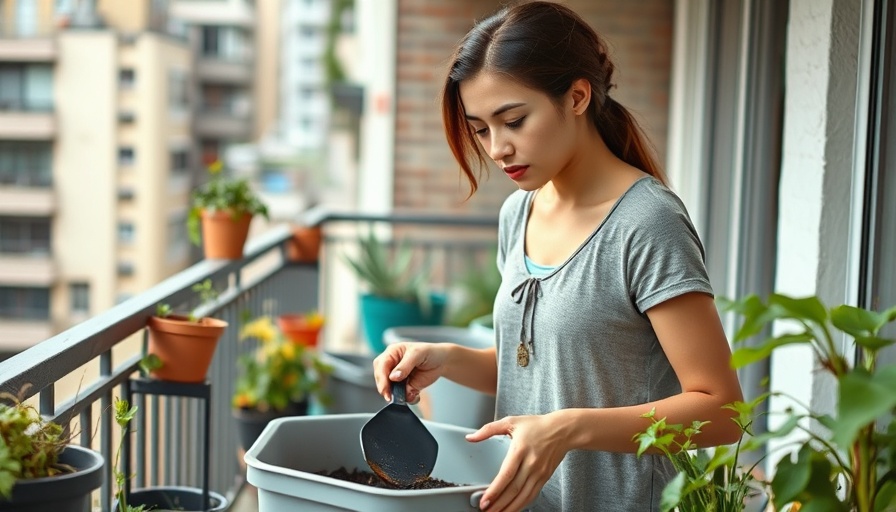
Transforming Waste into Wealth: The Joy of Urban Composting
Urban gardening doesn’t just mean growing beautiful plants in pots on your balcony; it also involves becoming an eco-conscious citizen, turning kitchen scraps into nutrient-rich compost. This endeavor fosters not just cleaner gardens, but also healthier communities. Composting allows city dwellers to effortlessly reduce waste while enhancing soil quality. With the right strategies and setups, anyone can embrace this sustainable practice, regardless of their living space.
Choosing the Right Compost Bin for Limited Spaces
When it comes to composting in urban environments, the first step is selecting a suitable compost bin. Traditional compost piles may be impossible for those with limited space, but there are plenty of options. Look for a product that matches your lifestyle and space availability, such as:
- Countertop Composters: These small, electric units can turn scraps into compost quickly—sometimes in as little as 24 hours. They are compact and unobtrusive, ideal for kitchen counters.
- Worm Bins: Vermicomposting is another innovative way to compost in apartments. It involves using worms to break down food scraps, and the worm castings created can enrich your plants with nutrients.
- Modular Bins: Options that allow for expanding capacity as needed and fit into small corners or under benches can be a game-changer.
The Perfect Spot: Finding a Composting Location
Location is key to successful composting. To maximize decomposition, your compost bin should ideally be placed in a well-ventilated area where it receives aeration but isn’t exposed to harsh weather conditions. Balconies or patios can be perfect spots, as long as they allow adequate airflow and drainage.
Accessibility is also crucial; placing your compost bin near your kitchen can facilitate adding scraps without a hassle. Remember to monitor the moisture level and aeration, as these parameters greatly influence the composting process.
What to Compost: The Balanced Mix of Greens and Browns
Composting isn't just about dumping scraps in a bin; it requires a well-balanced mix. A standard composting approach consists of:
- Greens: These are the nitrogen-rich materials, like vegetable scraps, coffee grounds, and yard waste.
- Browns: Carbon sources, which include dried leaves, cardboard, and straw, are essential to create a healthy compost.
To maintain a productive composting environment, aim for a carbon to nitrogen ratio of about 30:1. This balance enhances decomposition while preventing odors.
Innovative Urban Composting Techniques
While traditional composting methods are effective, urban gardeners can explore creative alternatives to enhance compost production:
- Chop and Drop: A technique where garden waste is cut back and left on the ground to decompose, enriching the soil.
- Spot Composting: Instead of relying on a single compost bin, dig small holes in your garden beds and bury scraps to enrich the soil directly.
- Community Composting: Many urban areas offer communal composting facilities or organic waste collections. Check local resources for nearby programs.
The Environmental Impact of Composting
Composting in urban settings not only benefits individual gardens but also contributes to the larger community by reducing landfill waste and greenhouse gas emissions. With each composting effort, urban gardeners can play a vital role in an ecosystem that embraces sustainability. Moreover, the compost produced can enhance soil quality, leading to lush gardens that support biodiversity.
Catalyzing Change: Your Role in Urban Composting
Every small effort in urban composting can spark significant change. Whether you are using a kitchen composter, a worm bin, or contributing to a community program, your actions create ripples across the environment. Curious about how you can start composting today? Explore local composting options, invest in a composter, and think about ways to get your neighbors involved. Small steps today can lead to substantial environmental benefits tomorrow!
For comprehensive tips, resources, and guidance on beginning your composting journey, visit ProHomeGuides to learn how to integrate these practices in your home efficiently!
 Add Row
Add Row  Add
Add 




Write A Comment